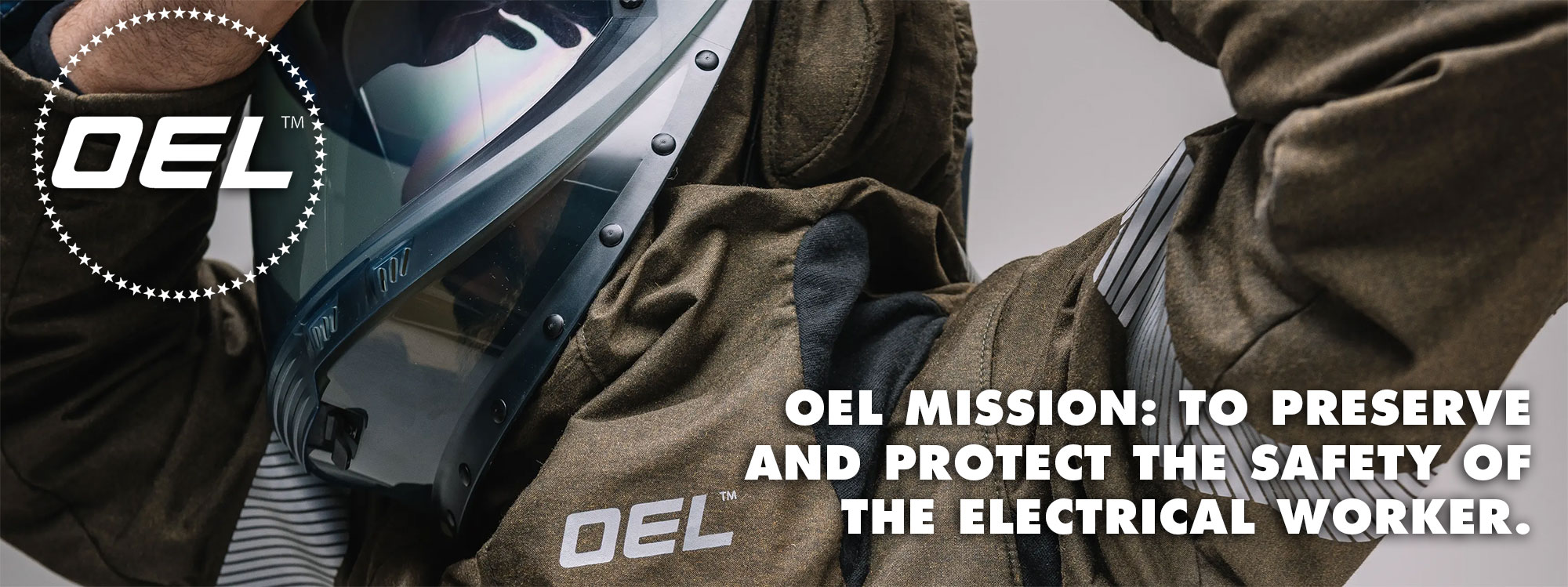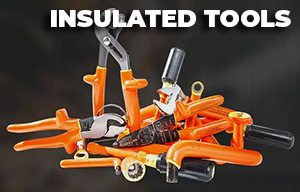
May is National Electrical Safety Month!
It’s the time of year to raise awareness on how to avoid potential electrical hazards. According to Electrical Safety Foundation International (ESFI), an estimated 35,000 home fires, over 1,130 injuries, 500 deaths, and $1.4 billion in property damage occurs each year because of electrical malfunctions.
PDC is YOUR distributor for OEL Worldwide Arc Flash Safety apparel, Double-Insulated Hand-Tools, and Rubber Gloves to keep you and your employees safe!
Talk with a PDC Sales Rep to learn more.



As May comes to an end, we wanted to share some tips to help you stay safe around electricity.
Be Kind to Your Cords
- Never use extension cords as a constant, long-term extension of your household’s electrical system. Continuous use can cause an extension cord to deteriorate and can result in a potentially dangerous electric shock or fire hazard.
- Never plug two extension cords together. Doing so can result in overloaded circuits, short circuits, and damaged cords, which could lead to fires or electric shocks. Instead of plugging extension cords together, consider installing additional outlets where needed.
- Do not run cords through walls, doorways, ceilings, or under rugs or carpet. If a cord is covered, heat cannot escape and can create a fire hazard.
- Make sure that your extension cord or power strip is properly rated for the device that will be plugged in and is marked for either indoor or outdoor use.
- Regularly inspect electrical cords and extension cords for damage.
- When storing them, try not to roll them up and hang them from a hook as this can create a pinch point and lead to premature wear and possible fraying of the cord at the point it hangs from.
Indoor Safety Tips
- Reduce your electrical load by using energy-efficient appliances and lighting.
- Unplug small appliances when not in use.
- Use an outlet cover or plastic outlet cap to keep children safe around outlets.
- Make sure your home has smoke alarms. Test them monthly, change batteries yearly, and replace the unit every 10 years.
- Never mix water and electricity. Always keep electrical appliances away from water and moisture. Whether it’s on or off, if a plugged-in appliance falls into water, do not attempt to retrieve or unplug it. Go immediately to your home’s panel board and shut off power to the corresponding circuit. Once that’s done, the appliance can be safely unplugged and removed from the water. Once the device has dried thoroughly, have an electrician evaluate whether it’s fit for continued use.
- Proper use of appliances and equipment. Be sure to use all power tools, appliances, and equipment according to the manufacturer’s instructions.
- GFCI receptacles are a requirement in newly constructed homes anywhere that electrical outlets and water will be in close proximity to one another. GFCIs detect current leakages (or ground faults) in electrical circuits – such as would occur when a powered device made contact with water. The GFCI then shuts off power to that receptacle almost instantaneously, preventing electrical shock, burns, and electrocution. If you live in an older home that didn’t come standard with GFCIs, installing them in place of traditional outlets in your bathroom, kitchen, and garage is an easy way to prevent severe electrical injuries at very little cost.
- Make sure you are using the right size circuit breakers and fuses. If fuses and circuit breakers aren’t the right size and wattage rating to match the specifications of their circuits, they’re going to fail right when you most need them to perform.
- The electrical outlets in most homes now have three-wire receptacles that accommodate electrical cords with three-prong plugs. The third prong provides a path to ground along which the electric current travels. Many older homes may not have three-wire receptacles. If your home does not, you should have an electrician rewire your home to accommodate the three-prong plugs. Although three-prong adapters can be purchased, they are suggested only for temporary use.
- Match the light bulb’s wattage rating to the lamp. Whenever choosing light bulbs to use with a lamp, be sure to check that lamp’s maximum wattage specifications.
- Whether a step ladder or extension ladder, the material it is constructed of and where you place it when you use it, can make the difference between life and death. While wood is a relatively good compound to use, a fiberglass ladder is better as it is a very poor conductor of electricity. In addition, no what you are going to be up against—any kind of power lines, cords, electric panels, etc. If you can, stay away from them with your ladder.
Outdoor Safety Tips
- Know what’s below before you dig. Have your local electric or natural gas company representative mark the location of underground lines for free.
- Never touch downed power lines.
- Watch for overhead power lines every time you use a ladder, work on roofs and trees, or carry long tools or loads.
- Do not overload outdoor electrical and/or extension cords or allow them to run through water or snow on the ground.
- Keep electrically powered outdoor tools dry. Whether it’s raining, just finished raining, or you’ve recently run the lawn sprinklers, never attempt yard work with electrically powered tools in wet conditions. Protect yourself from shock and electrocution by keeping your electric hedge trimmer, weed whacker, and lawnmower safely unplugged and stowed away until precipitation has stopped, grass and foliage is dry, and puddles can be easily avoided.
- Workshop. Ungrounded faulty tools are always hazardous. Make sure power tools are grounded or are double-insulated. Wear rubber-soled shoes, stand on a rubber mat, and keep work floors dry. Receptacles in basements and garages should have a ground fault circuit interrupter.
